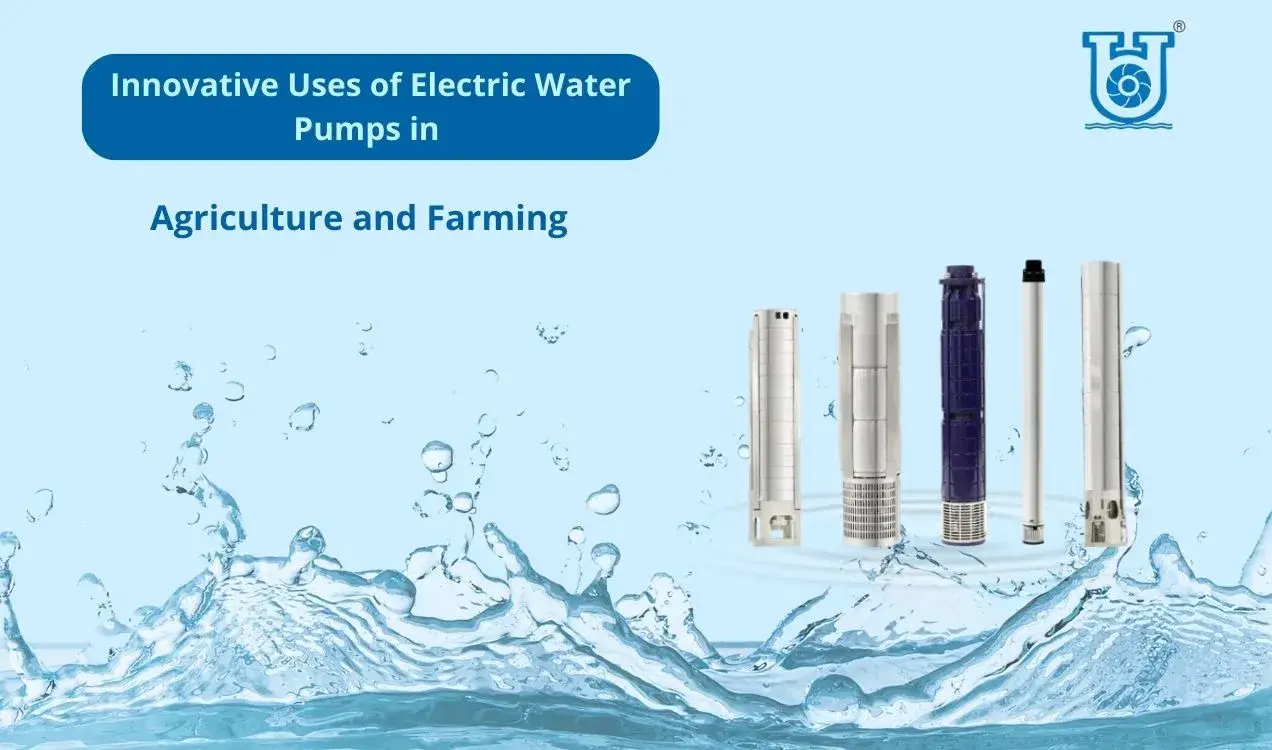Water pumps play an important position in agriculture by transporting water from its supply to where it’s wished. In farming, electric water pumps are crucial for irrigation. The progressive use of electrical water pumps has revolutionized agriculture, supplying a dependable and price-effective approach to ensuring steady water distribution for plants. These pumps are specifically precious in far-off places where access to clean water is constrained, making them indispensable for the fulfilment of contemporary agricultural practices.
Water-Smart Farming
Innovative technologies, consisting of electric-powered water pumps, are transforming the lives of smallholder farmers by presenting sustainable and cost-effective answers for excessive-expenses agriculture. These pumps have been instrumental in saving as much as 70% of watering for farmers, as compared to conventionally used fossil-gas-based pumps.
Water Pump Uses in Agriculture
Water pumps are crucial in agriculture, and there are various varieties of water pumps that farmers use, which include centrifugal, submersible, piston, shallow properly jet, and deep nicely jet pumps. These pumps are used for irrigation.
With water pumps, farmers can supply the proper amount of water to their vegetation in every place on their land easily, making sure that plants receive the proper amount of water, temperature, and pressure.
The principal types of electric-powered water pumps
In agriculture and farming, numerous kinds of electric water pumps are used to ensure green water distribution. These consist of:
1. Submersible Pumps
- Submersible pumps are turbine pumps coupled to a water-tight electric motor, used for transferring large volumes of water with low power necessities.
- They are clean to put in and hold, cost-effective, and suitable for areas where the water supply is shallow.
2. Surface Pumps
Surface pumps are suitable for shallow wells and surface water resources, providing a dependable method of water delivery for irrigation and different agricultural needs.
3. Booster Pumps
Booster pumps are used to grow water strain in irrigation structures, making sure adequate water glides to all areas of the farm or field.
Innovative Applications of Electric Water Pumps
- Precision irrigation: Electric-powered pumps can be used for focused watering, decreasing water waste and improving crop yields.
- Fertigation: Pumps can be used to inject fertilizers and different nutrients immediately into irrigation water, enhancing nutrient uptake and performance.
- Frost protection: Pumps can be used to flow into water and save plants from frost harm.
Benefits of Using Electric Water Pumps
- Increased efficiency: Electric pumps use much less energy than traditional diesel or gasoline pumps, lowering operational expenses and emissions.
- Improved water management: Pumps allow farmers to better monitor water utilization, leading to more sustainable practices.
- Reduced hard work costs: These new generation electric pumps can automate irrigation obligations, freeing up farmers’ time and exertions for different activities.
- Enhanced crop yields: Advanced irrigation with the latest technique-enabled pumps can cause higher crop yields and higher first-rate produce.
Increasing Pump Efficiency
To boost pump efficiency, several measures may be taken, consisting of fending off oversizing, trimming or changing the impeller, using variable velocity drives, and restricting pipework strain loss. Proper renovation and upkeep are critical for decreasing electricity consumption, as it can decrease performance also. The effect of pump performance on price and agricultural productiveness is enormous, as pumping systems account for a huge portion of electrical strength demand, and an efficient pump can result in financial savings. Therefore, optimizing pump efficiency is important for decreasing working charges and enhancing usual agricultural productivity.
Expert Advice for Safely Operating Submersible Motors
Safely working submersible motors is crucial to save you from accidents and ensure their durability. Safety measures include grounding the motor, wearing protective tools, and keeping the motor location clean of debris and other hazards. Regular upkeep, proper and comprehensive training, and following safety guidelines are important to guarantee the safety and lifespan of submersible motors.
It is usually recommended to get expert assistance and to follow the manufacturer’s instructions for safe operation. Neglecting protection tips can create dangerous situations, resulting in harm to people and belongings, in addition to costly repairs or replacements. Understanding the risks associated with submersible pumps, including electrical dangers, corrosion, and overloading, is critical for secure and smooth operation.
Wrapping Up
Innovative electric water pumps revolutionize agriculture by providing sustainable, cost-effective, and dependable solutions. These pumps have been instrumental in reducing 70% of watering/irrigation expenses for farmers compared to conventionally used fossil-gas-based pumps.
The importance of these modern water pump technologies can’t be overstated, as they are crucial for advancing sustainable agriculture and farming practices, ensuring water is delivered for agriculture without any hurdle, and in the long run enhancing farmers’ earnings.


